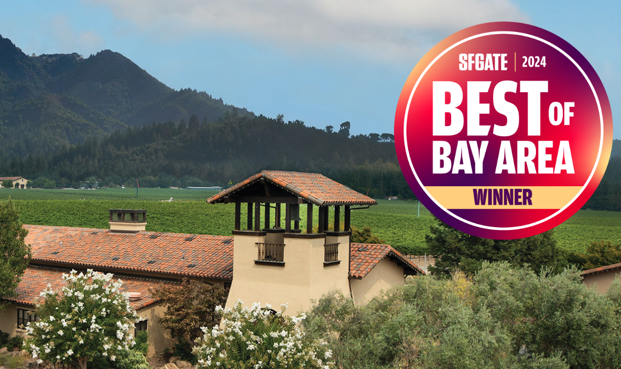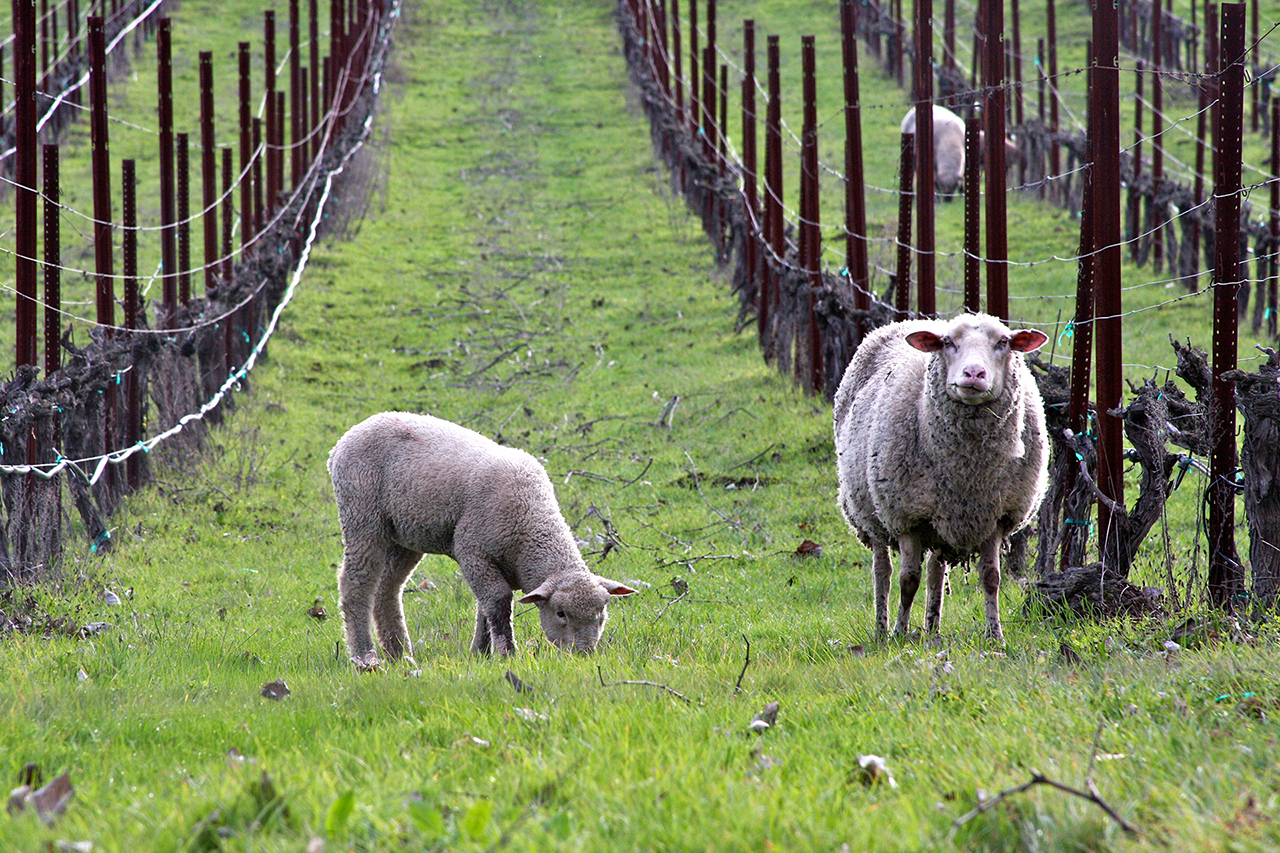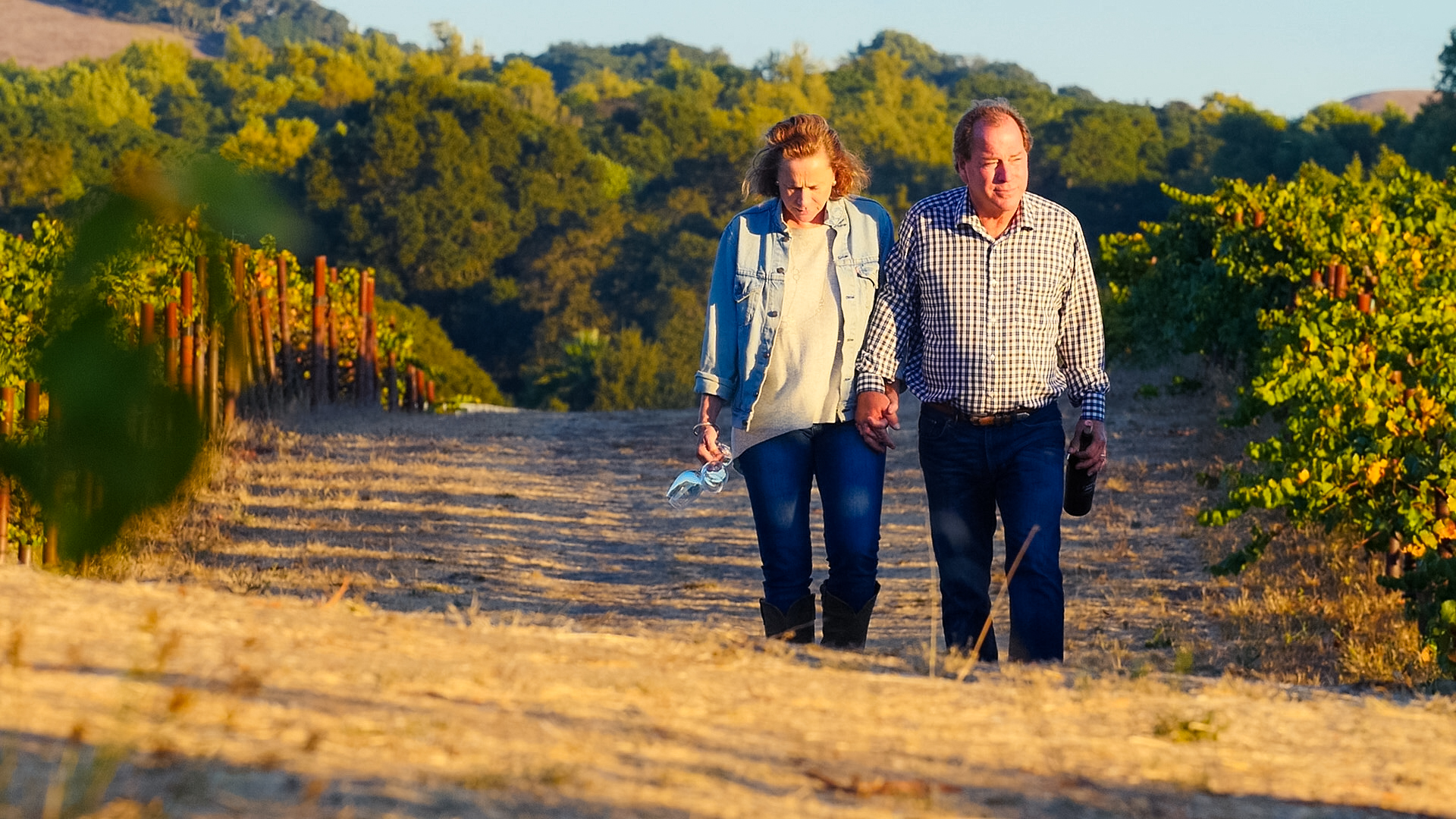酒莊巡禮:加州 聖方濟酒莊St. Francis Winery Description

我們的創辦人喬·馬丁(Joe Martin)愛上了索諾瑪谷(Sonoma Valley),並於1971年創立了聖方濟酒莊(St. Francis Vineyard),種植了22英畝的夏多內(Chardonnay)以及索諾瑪谷第一批60英畝的梅洛(Merlot)。在成為成功的葡萄種植者後,喬於1979年創立了聖方濟酒莊(St. Francis Winery)。
我們的首位釀酒師湯姆·馬基(Tom Mackey)於1983年加入聖方濟,他以將索諾瑪的梅洛和夏多內提升為超高品質、可獨立表現的單一品種葡萄酒而聞名。《葡萄酒觀察家》(Wine Spectator)更稱他為「梅洛之王」(The Master of Merlot),著名酒評家羅伯特·帕克(Robert Parker Jr.)也給予了高度評價。
1988年,聖方濟酒莊與科夫家族(Kopf family)展開合作。該家族因其在葡萄酒與烈酒產業中的歷史傳承與對品質的堅持而廣受尊敬。科夫家族的傳奇始於1933年禁酒令解除後,魯迪·科夫(Rudy Kopf)在紐約創立了梅西百貨(Macy’s)葡萄酒與烈酒部門,該部門後來成為全美最優秀的酒類零售商之一。
環境與社會責任
我們在索諾瑪谷與俄羅斯河谷(Russian River Valley)擁有超過400英畝的「永續農業認證」葡萄園。我們堅守永續發展的「三個E」原則:環境(Environment)、經濟(Economics)與社會公平(Social Equity)。
- 太陽能板提供我們高達40%的能源需求
- 我們的農業實踐(包括種植覆蓋作物與堆肥)有助於減少灌溉與除草劑的使用
- 我們的水資源與材料回收計畫有效節省資源——酒瓶中有45%使用回收玻璃

太陽能板提供我們高達40%的能源需求

材料回收計畫
聖方濟酒莊積極參與索諾瑪社區服務,也因此獲得多項榮譽,包括:
- 每售出一瓶酒,就捐贈1美元給「Canine Companions」,為身心障礙者提供服務犬
- 每年十月舉辦「動物祝福儀式」,延續聖方濟的精神
- 主導節日衣物與玩具募集活動,幫助弱勢族群
- 積極參與創辦人紀念日的社區志工服務

每售出一瓶酒,就捐贈1美元給「Canine Companions」,為身心障礙者提供服務犬

動物祝福儀式

衣物與玩具募集活動

創辦人紀念日的社區志工服務
優良品種與獲獎紀錄

我們也與索諾瑪郡的頂尖葡萄農建立長期合作關係,這讓我們得以取得該地區最受讚譽的老藤金粉黛(Zinfandel)與其他優質葡萄品種。
聖方濟酒莊獲得全球葡萄酒愛好者的高度評價,並於2013與2015年被OpenTable用戶票選為「全美第一」。2024年,我們也獲《舊金山紀事報》選為舊金山灣區最佳酒莊。我們的葡萄酒多次榮獲業界大獎!
我們的酒莊與優雅的傳教風格(mission-style)訪客中心坐落於索諾瑪谷核心地帶,四周環繞著我們自家的葡萄園。
 —— 聖方濟酒莊暨葡萄園總裁兼執行長:Rick Bonatati
—— 聖方濟酒莊暨葡萄園總裁兼執行長:Rick Bonatati
Our founder, Joe Martin, fell in love with Sonoma Valley & established St. Francis Vineyard in 1971, planting 22 acres of Chardonnay and the first 60 acres of Merlot in Sonoma Valley. After achieving great success as a grower, Joe opened St. Francis Winery in 1979.
Our first winemaker, Tom Mackey, joined St. Francis in 1983 and was renowned for elevating both the quality and style of Sonoma Merlot and Sonoma Chardonnay as ultra-premium, stand-alone varietals. Wine Spectator named the St. Francis Winemaker at the time, Tom Mackey, “ The Master of Merlot”. The esteemed Robert Parker, Jr. provided positive acclaim as well!
In 1988, St. Francis partnered with the Kopf family, long admired for their historic family legacy in the wine and spirits industry & their commitment to quality. The Kopf legacy began in 1933 upon the repeal of prohibition, when Rudy Kopf founded the Wine & Spirits Dept. of Macy’s in New York, which became one of the finest wine and spirits retailers in America.
We farm more than 400 acres of Certified Sustainable estate vineyards in Sonoma Valley and Russian River Valley. We are committed to the “3 E’s” of Sustainability – Environment, Economics, and Social Equity
- Solar panels provide up to 40% of our energy needs
- Farming practices – including cover crops and composting – reduce the need for irrigation and herbicides
- Water and materials recycling program in place to save resources – 45% recycled glass is used in our wine bottles
St. Francis Winery is heavily involved with our Sonoma Community, and has received accolades for community service, including:
- For every bottle of wine sold, we contribute US$1 to Canine Companions, providing service dogs for the disabled
- Conducting a Blessing of the Animals every October in keeping with St. Francis
- Leading a Holiday Clothing and Toy Drive for the Less Fortunate
- Participating in a Founder’s Day Community Service activities
We also nurture long-term relationships with top Sonoma County grape growers, giving the Winery access to some of the region’s most coveted old vines Zinfandel and other varietals from acclaimed vineyards.
St. Francis has earned worldwide praise from legions of fans and was voted “#1 in America” in 2013 and 2015 by “OpenTable” diners, and the Best Winery of the Sanfrancisco Bay Area for 2024 from the San Francisco Chronicle newspaper. Our wines have received many industry accolades! Our Winery and beautiful mission-style Visitor Center are located in the heart of Sonoma Valley, surrounded by our estate vineyards.


